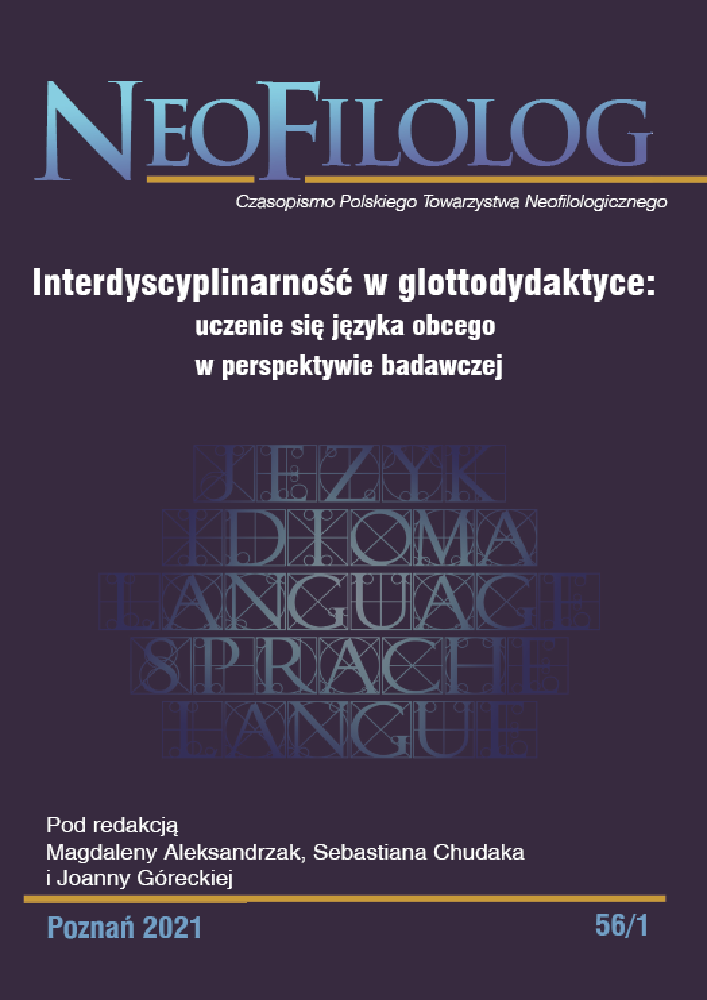Nr. 56/1 (2021)
Published March 31, 2021
Interdyscyplinarność w glottodydaktyce – uczenie się języka obcego w perspektywie badawczej
Komplette Ausgabe
PDF (Język Polski)
Wprowadzenie
Artykuły
9-22
23-38
39-54
55-70
71-90
91-105
107-122
Recenzje
141-149
149-151
